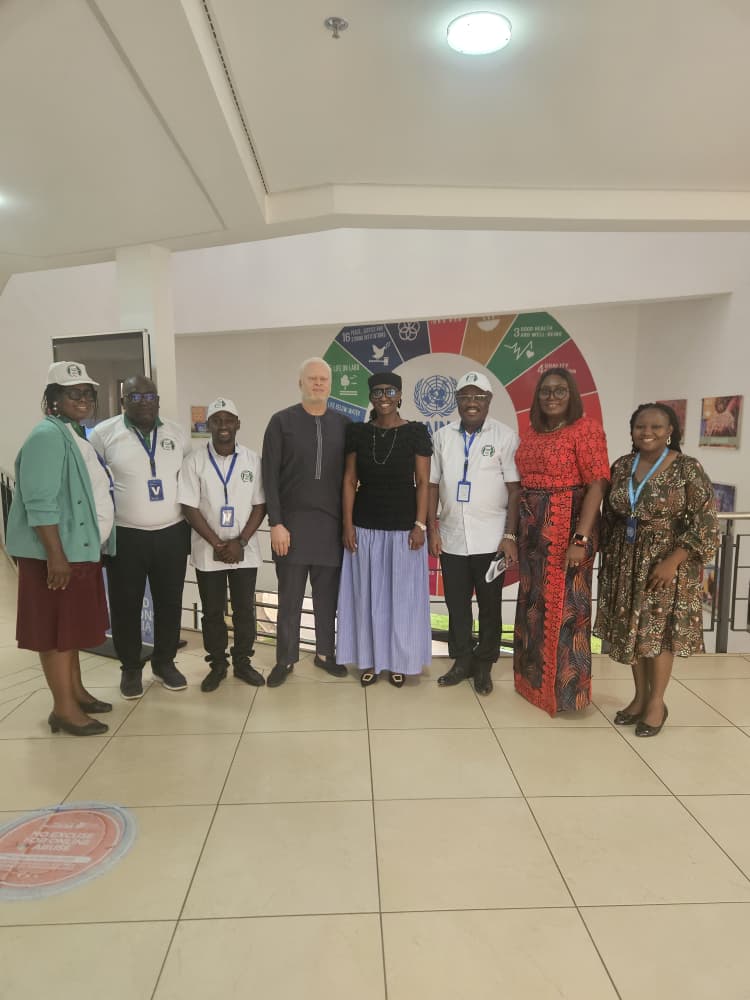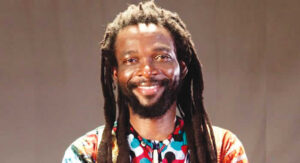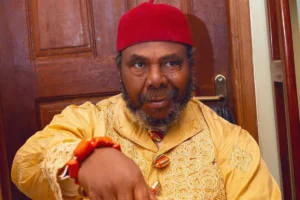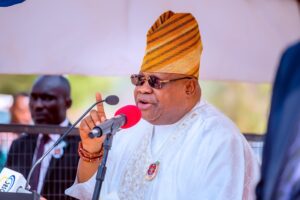Does Nigeria have a problem or a situation?
[ad_1]
IN 1845, Karl Marx jotted down some notes for The German Ideology, a book that he wrote with his close friend Friedrich Engels. Engels found these notes in 1888, five years after Marx’s death, and published them under the title Theses on Feuerbach. The eleventh thesis is the most famous: ‘philosophers have only interpreted the world in various ways; the point, however, is to change it’. The most widely accepted interpretation of this thesis is that, in it, Marx urges people not only to interpret the world, but also to try and change it. However, we do not believe that this captures the meaning of the sentence. What we believe that Marx is saying is that it is those who try to change the world that have a better sense of its constraints and possibilities, for they come upon what Frantz Fanon calls the ‘granite block’ of power, property, and privilege that prevents an easy transition from injustice to justice. Nigeria is a very strange place. In Nigeria we debate what is real, imagined, what is fantasy and what is reality.
In Nigeria, we are problem-focused. We always have problems, our politicians, our leaders, the systems, structure, our past, our present and future, our people, our democracy, our elections. Everything has a problem. Everything and everyone is a problem. You leave Plateau state to Bauchi to do an MRI scan because there is a problem with the problem. The prestigious and renowned University College Hospital Ibadan where it was said the Saudi royalty once upon a time came for their healthcare currently has barely a 20-bed ICU. See problem! The governor of Abia has done a lot including getting an eatery to establish an outlet in the state, the same Abia boasts of Aba, considered one of the dirtiest cities around and also one of the most industrious and neglected by the government. Solution and problem joined together! Tell me the state and I will show where the people are drinking multidimensional poverty from all strata of government. Daura in Katsina hasn’t produced an exceptional student in any exam even as the president’s homestead and the state continues to be plagued by insecurity.
Fake teachers from Abeokuta the cradle of knowledge to Jos, the land of natives and non-natives. What are we committed to, what are we sacrificing for and to, what does Nigeria mean to us, let’s break it if that’s a solution, so pedestrian and easy, I will remind us when the arm dealers are sealing and dealing with the Nupe warlords, Anaguta freedom fighters, Fulani Miyetti and Hausa aggrieved warriors or rare Igbo union it won’t be funny.
Welcome to Nigeria. In Nigeria, we don’t have problems, because we are the problems, no. We don’t have problems, we have situations. If your wife catches you with a neighbour’s wife, you don’t have a problem, you have a situation. Problems are hard to solve; situations can be solved. If your girlfriend is spending more time with another guy, if you don’t have money, all of these are situations. Change your girlfriend or change your mindset, your work or something. Nigeria as a whole, as a country, or nation, as a people has a situation we have got to that point on several occasion, we were there and the civil war broke out. Our ethnographic-ethno religious conflicts have taken us there; the menace of herdsmen and farmers, bandits and politicians keep taking us closer to precipice. The powerful not only control social wealth; they also control the public policy discussion and what counts as intellectually correct. Good ideas are never sufficient. They are not believed or enacted simply because they are right. They become the ideas of our time only when those who come to believe in their own power, which use this power to struggle through institutions and advance their ideas wield them.
ALSO READ FROM NIGERIAN TRIBUNE
Nigeria is in a situation. Will men of good conscience, patriots, stand up to be counted? There’s no structure or system to build upon. Yet we must sit and talk about who we are and how we want to live. Our current situation provides yet another opportunity for us to look forward, and understand where we are coming from, and take a leap with understanding on what needs to be done according to each peculiarity. I end with this story. So, I went to a mental institution and wanted to send one person home. So I was going to ask a simple question. I asked the first person 3×3 and the fellow scratched his head and he answered 164, I said to him: Go back. Then I asked the second person the same question and he smiled, looked up and then responded after a while Tuesday. Sorry. Wrong answer. “Go back to your room.” I almost gave up, until I went to the last person and asked the same question, if you can answer this question, I will let you go. He looked back at the other two who had left and smiled and said doctor it’s 9. Right, and I gave him the release papers and he started running to the door.
But before he ran away, I said I need: “You to tell me something, your two friends did not come up with the right answer. How did you manage it?” He said it was so simple. “I multiplied 164 by Tuesday and I got 9.” Nigeria may get the right answer but is the thinking correct? Nigeria finds answers often at the last minute but truth be told, ‘the country has been interpreted in various ways that only capture problems. Without a change in thinking, we won’t solve it, we must see our present circumstances as situations that can change with a different interpretation, and better thinking.
- Dickson, PhD, is Team Lead, The Tattaaunawa Roundtable Initiative (TRICentre)
[ad_2]















Post Comment